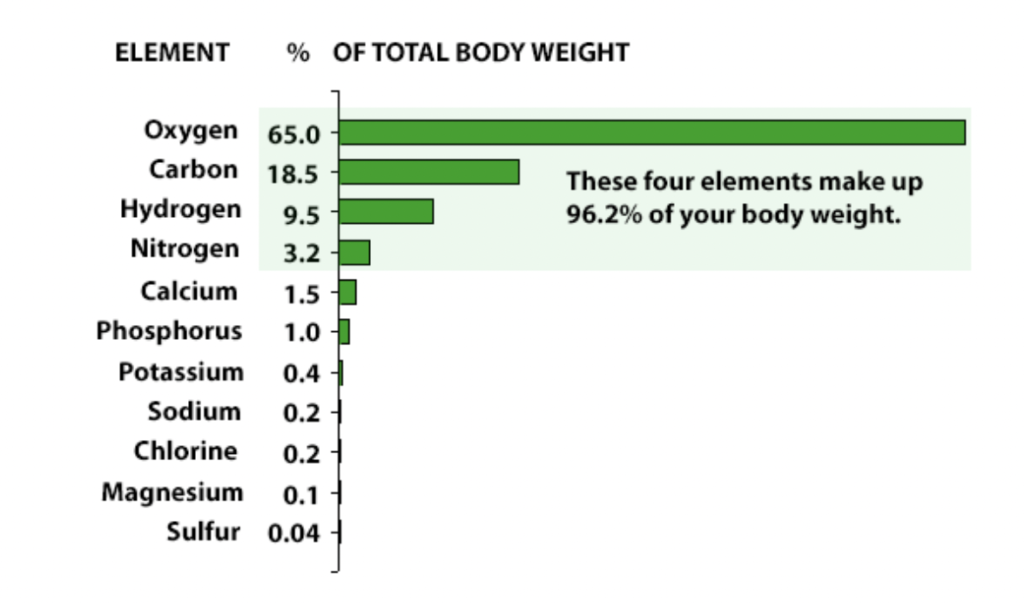
Heart problems and magnesium deficiency have a correlation. Magnesium deficiency prompts various heart diseases.
Magnesium is vital for the heart because of being a mineral that participates as an electrolyte. Magnesium helps blood vessels relax, which leads to lower blood pressure. Magnesium prevents blood clotting keeping calcium away. Besides, magnesium maintains the elasticity of blood vessels.
Problems with heart
The heart is a muscle that contains most of the magnesium in the body. Heart ventricles have most of this mineral. You know that EKG(electrocardiogram) is a procedure when a device measures heart electrical signals.
When magnesium deficiency occurs, the heart cannot function properly. Dr.Carolyn Dean explains this consequence in a simple manner:
In a healthy heart, the electrical impulses in the atria are coordinated by the proper balance and interaction of several minerals that function as electrolytes: magnesium, calcium, sodium, and potassium. It seems logical that an imbalance of these minerals is the cause and balancing them is the cure.
Dr.Carolyn Dean, The Magnesium Miracle, 221
When the heart lacks magnesium, it can cause atrial fibrillation. The number of people who will have this problem in 2030 is around 12.1 million.
There are triggers for atrial fibrillation such as
- Alcohol
- Air pollution
- Calcium
- Coronary artery disease
- Dental infections
- Dehydration
- Diabetes
- Electrolyte imbalance
- Gas, hiatal hernia, and bloating
- Gluten and glutamate sensitivity
- Abnormal heart valves
- Heart attack
- Heart structural changes
- The holidays
- High blood pressure
- Hypoglycemia
- Inflammation
- Infections
- Lung problems
- Medications
- Obesity
- Intense physical activity
- Potassium deficiency
- Sick sinus syndrome
- Exposure to stimulants
- Sleep apnea
- Stress from anxiety and panic attacks
- Surgical procedures
- Sugary diet
- Overreacting thyroid gland
- Travelling
- Yeast overgrowth
- Vitamin D
Dr.Carolyn Dean found out these triggers for atrial fibrillation. It is interesting that magnesium is involved in almost all these situations.
For example, stress causes atrial fibrillation. During stressful times, adrenal glands produce adrenalin and cortisol. These hormones deplete magnesium during metabolic processes. It means that you will have various problems simultaneously: feeling stressed and getting atrial fibrillation. Not so much fun, is it not?
Coronary diseases
These problems happen when coronary arteries lose their elasticity and are inflamed. It can lead to a heart attack.
Why does it happen? Tiny blood vessels can collapse in spasms or be plugged with a blood clot. Magnesium prevents blood clot formation and artery spasms.
How does magnesium benefit the heart?
Magnesium is a vital mineral for the heart and blood vessels because it
- Magnesium maintains the elasticity of the artery wall
- Magnesium dilates blood vessels
- Magnesium prevents calcium deposits
- Magnesium is essential for the maintenance of healthy heart muscle
Additionally, magnesium supervises the activity of nitric oxide, which controls vasodilation.
Do you see how everything is connected in the body? The deficiency of one essential mineral can make all domino pieces fall apart. People will not die, but they will have problems with hearts in a less or more dangerous way.

Prediction of heart diseases
Studies found out that C-reactive protein shows that heart disease can occur or just starts to develop.
C-reactive protein is a measure of inflammation. If this CRP(C-reactive protein) is elevated, it is shown that inflammation is in the body. Thankfully, magnesium works as an anti-inflammatory agent.
According to Dr.Carolyn Dean
Sufficient magnesium can calm inflammation at every stage, whereas the only other option, anti-inflammatory prescription drugs, are ineffective and cause dangerous side effects.
Dr.Carolyn Dean, The Magnesium Miracle, 201
Prevention of heart problems with magnesium
Sufficient magnesium can prevent atherosclerosis. Atherosclerosis happens when walls of arteries thicken thanks to deposits of calcium. As you know that magnesium prevents cells from calcium overflow.
Furthermore, magnesium help prevents angina attacks. James B.Pierce, Ph.D. thinks that 50 and more heart attacks may be due to magnesium deficiency. Additionally, he discovered that magnesium works better than nitroglycerine for his own chest pains.
Heart attacks
According to Dr.Carolyn Dean, magnesium plays a vital role in dealing with heart attacks.
Magnesium can improve the aftermath of an acute heart attack by preventing rhythm problems, increasing blood flow to the heart by dilating blood vessels, protecting the damaged heart muscle against calcium overload, improving heart muscle function, breaking down any blood clots blocking the arteries, and reducing free radical damage.
Magnesium may also help the heart drug digoxin to be more effective in the treatment of cardiac arrhythmia, without enough magnesium, digoxin can become toxic.
Dr.Carolyn Dean, The Magnesium Miracle, 205
Dr. Carolyn Dean points out more of heart problems that occur when magnesium is deficient:
- Heart failure
- Spastic heart
- Broken heart syndrome
- Coronary artery calcification that leads to heart problems
- Mitral valve prolapse
- Aortic stenosis
All these problems have a correlation with magnesium deficiency. I wonder if it will be not easier to take best magnesium supplement and prevent heart problems?
Of course, you need to take a mineral supplement that does not have side effects. Besides, bioavailability is important.
All magnesium supplements are different. Most of them absorb in the body in the 20% range. What you would tell that I know a magnesium supplement that
- is 100% pure magnesium ions
- contains stable ions that do cluster together
- Absorbs in 100% range
- Goes straight into cells avoiding intestine
- Does not have any side effects
- is twenty time more denser compared with angstrom minerals
You can read about this magnesium supplement, called ReMag, here.
The heart is gentle but, at the same time, a sturdy organ that can work all time without interruption. However, we must care for ourselves, giving the body its needs. In this case, magnesium plays a pivotal role. Heart problems and magnesium deficiency have a strong correlation. Why? When magnesium is sufficient in the body, you will not know that heart exists. Is it not exciting?




